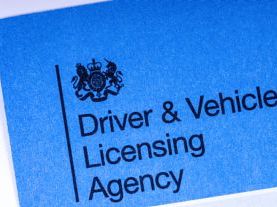The BVRLA needs member feedback on the following two consultations launched by the Government last week. Both follow the successful trial of longer semi-trailers (LSTs), which have been shown to cut emissions and boost haulier productivity.
The first consultation addresses the future of longer goods vehicles and whether these should become a permanent fixture on Britain’s roads.
Longer than conventional heavy goods vehicles (HGVs) but not heavier, LSTs can carry three more rows of supermarket goods cages on each journey compared with existing trailers.
A trial of LSTs that has been underway for the past seven years has shown that they have saved lorry drivers travelling millions of miles – cutting emissions and boosting productivity. Up until last year, the vehicles involved in the trial have saved lorry drivers 33.5 million miles and 48,000 tonnes of CO2 – equivalent to taking over 20,000 cars off the road. The results also show the trailers were involved in fewer personal injury collisions compared with standard size HGVs.
Off the back of these positive results, the Government has proposed to end the trials early and, through the consultation, is seeking views on whether LSTs should be allowed to permanently operate on roads across the UK.
The Department for Transport also launched a further consultation on proposals to start a trial of slightly heavier HGVs on UK roads, which could see the maximum weight of some HGVs increased by 4 tonnes to 48 tonnes.
The change suggested in the consultation would allow lorries to transport heavier containers direct to or from freight trains, helping to shift more cargo from road-only journeys onto rail, and therefore cutting emissions and congestion on our roads.
The proposed trial would operate on around ten routes cleared as safe for use by 48-tonne vehicles and would look at whether it encouraged a shift of goods from road to rail.
The consultations come ahead of the Transport Decarbonisation Plan, which will set out a clear pathway to delivering transport’s contribution to reducing greenhouse gas emissions and meeting net-zero by 2050.
For more information or to give feedback contact [email protected].




